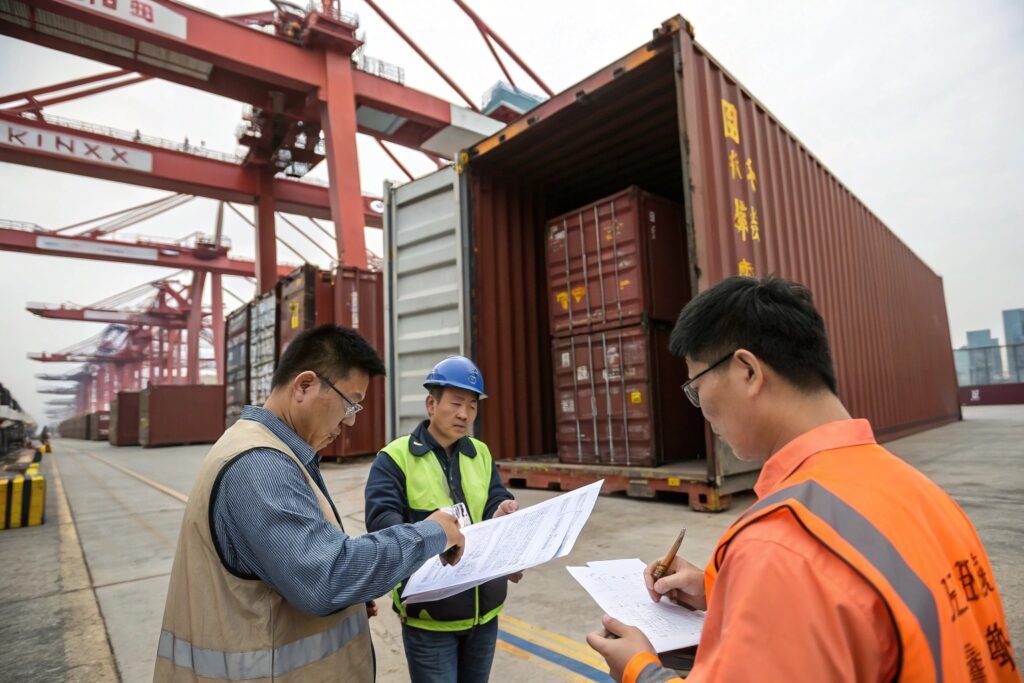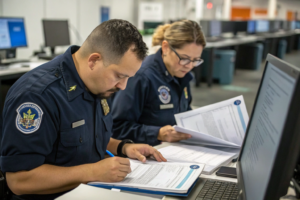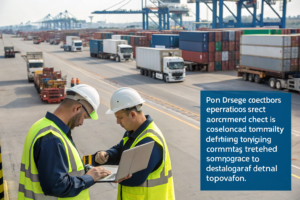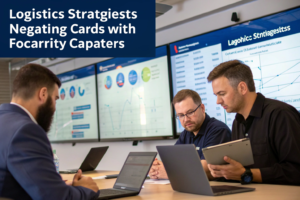International shipping may look simple on paper. But once you try booking a container, handling customs, and tracking delivery from China to the U.S., the hidden complexity hits hard.
Freight forwarders manage the entire international shipping process — from factory pickup to final delivery — making global trade faster, safer, and more efficient.
Many importers, especially small and medium-sized businesses, don’t have the time or resources to manage everything in-house. That’s where a trusted forwarder like GeeseCargo makes all the difference.
Benefits of hiring a freight forwarder for your business
Hiring a freight forwarder is like having a logistics department without hiring a full team. You get expertise, technology, and support — without the overhead.
A freight forwarder brings shipping knowledge, carrier access, customs experience, and problem-solving to your business. This saves time, reduces costs, and minimizes delivery risks.

What business advantages do freight forwarders offer?
Here’s how working with a forwarder impacts your bottom line:
| Benefit | Description |
|---|---|
| Better Freight Rates | Access to negotiated carrier discounts |
| Supply Chain Visibility | Real-time shipment tracking and proactive updates |
| Document Accuracy | Avoid customs rejections and costly delays |
| End-to-End Service | From factory pickup to final delivery |
| Risk Management | Fast solutions during strikes, inspections, or port congestion |
| Cost Control | Clear breakdowns of all shipping charges |
At GeeseCargo, we’ve helped many clients reduce total shipping costs by 10–20% through smarter routing and faster customs processing.
One U.S. buyer told us: “After switching to GeeseCargo, I stopped worrying about whether my cargo would get stuck at customs. I could finally focus on growing my sales.”
Can freight forwarders help small businesses?
Absolutely. You don’t need to be a big brand to benefit. In fact, the smaller your team, the more valuable our logistics support becomes.
We often help new importers:
- Understand Incoterms
- Set realistic delivery timelines
- Avoid shipping scams
- Budget landed costs correctly
How freight forwarders simplify international logistics
Managing international shipments involves multiple parties, systems, and rules. Without a forwarder, the importer often becomes the middleman — chasing updates, solving problems, and filling out documents.
Freight forwarders simplify logistics by coordinating all parties — from the factory to customs to carriers — into one seamless process with one point of contact.

What logistics tasks do forwarders handle?
Here’s a full breakdown:
| Task | Managed by Freight Forwarder? |
|---|---|
| Factory Pickup Coordination | ✅ |
| Export Clearance from China | ✅ |
| Booking Space with Carriers | ✅ |
| Bill of Lading & Shipping Docs | ✅ |
| Import Customs Clearance | ✅ (if DDP) |
| Local Delivery to Warehouse | ✅ |
| Cargo Insurance & Duty Estimates | ✅ |
| Real-Time Tracking & Status Updates | ✅ |
When you work with GeeseCargo, you only need to:
- Confirm your product specs and cargo volume
- Share your supplier contact info
- Choose your delivery address and shipping term (FOB or DDP)
We take care of the rest.
Why is this simplification important?
Because every delay, miscommunication, or paperwork error costs time and money. Our goal is to help clients avoid problems before they happen.
I still remember a buyer who used to manage shipping himself. He told me, “I spent more time emailing port agents than sourcing products.” Once he hired us, he cut his logistics time by 80%.
Freight forwarder vs. managing shipping yourself
Some importers think they can save money by doing it all on their own. And in rare cases, that works — but more often, it backfires.
Managing international shipping yourself means more work, higher risk, and limited support. Freight forwarders offer convenience, reliability, and cost control that’s hard to match alone.

How do costs and risks compare?
| Factor | Managing Yourself | Using Freight Forwarder |
|---|---|---|
| Shipping Cost | Might appear lower upfront | Often lower overall via bulk rates |
| Time Required | High — you coordinate everything | Low — we manage end-to-end |
| Risk of Delays | High (paperwork mistakes, customs issues) | Low (proactive problem solving) |
| Control | Full, but overwhelming | Shared, with expert support |
| Communication | Talk to many parties | Talk to one team (us) |
Managing it alone means you’re on the hook for:
- Booking
- Freight tracking
- Custom clearance
- Duty classification
- Final-mile coordination
Unless you have a full internal team, this quickly becomes overwhelming. That’s why many of our clients say “logistics used to be our bottleneck — now it’s our strength.”
Is there ever a reason not to use a forwarder?
Only if:
- Your supplier offers full DDP with no markup
- You have in-house customs and logistics staff
- You’re moving small domestic shipments only
Otherwise, a forwarder brings you more value than it costs — especially when shipping across borders.
When is it essential to use a freight forwarder?
Some situations absolutely require a freight forwarder. If you try to manage these yourself, you risk delays, penalties, and damaged relationships with buyers or suppliers.
You need a freight forwarder when shipping full containers, crossing multiple customs borders, using DDP shipping terms, or importing high-volume or regulated goods.

What scenarios demand professional logistics help?
Here are the most common ones:
| Scenario | Why a Forwarder is Essential |
|---|---|
| FCL Ocean Shipping | Port booking and customs complexity |
| DDP Shipments | Requires customs broker and importer role |
| Air Freight Consolidation | Tight schedules, sensitive cargo |
| Amazon FBA Delivery | Requires label checks, time slots |
| Multi-supplier Consolidation | Needs warehouse coordination |
| High-Value Cargo | Requires insurance, security, licensed staff |
| Trade Show Deliveries | Time-sensitive, pre-clearance needed |
In one case, we helped a brand importing apparel to New Jersey avoid FDA inspection delay by handling pre-clearance and customs classification correctly. Without a forwarder, that shipment could have missed its season.
Can forwarders help with customs and compliance?
Yes — and it’s one of the most important reasons to work with us.
At GeeseCargo, we help:
- Classify your HS codes correctly
- Avoid under- or over-declaring value
- Track tariff changes (esp. China–USA trade)
- Prepare required licenses for restricted goods
Customs is where many shipments go wrong. Our job is to make sure yours doesn't.
Conclusion
Freight forwarders do more than book space — they turn international shipping into a predictable, professional process. Whether you're scaling your business or shipping for the first time, working with a reliable partner like GeeseCargo saves time, reduces risk, and helps your cargo move smoothly across borders.









